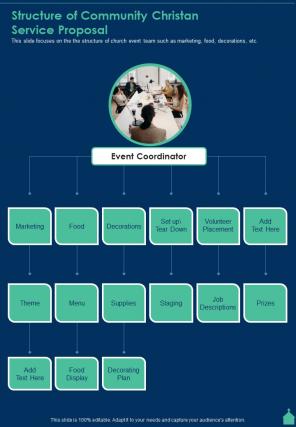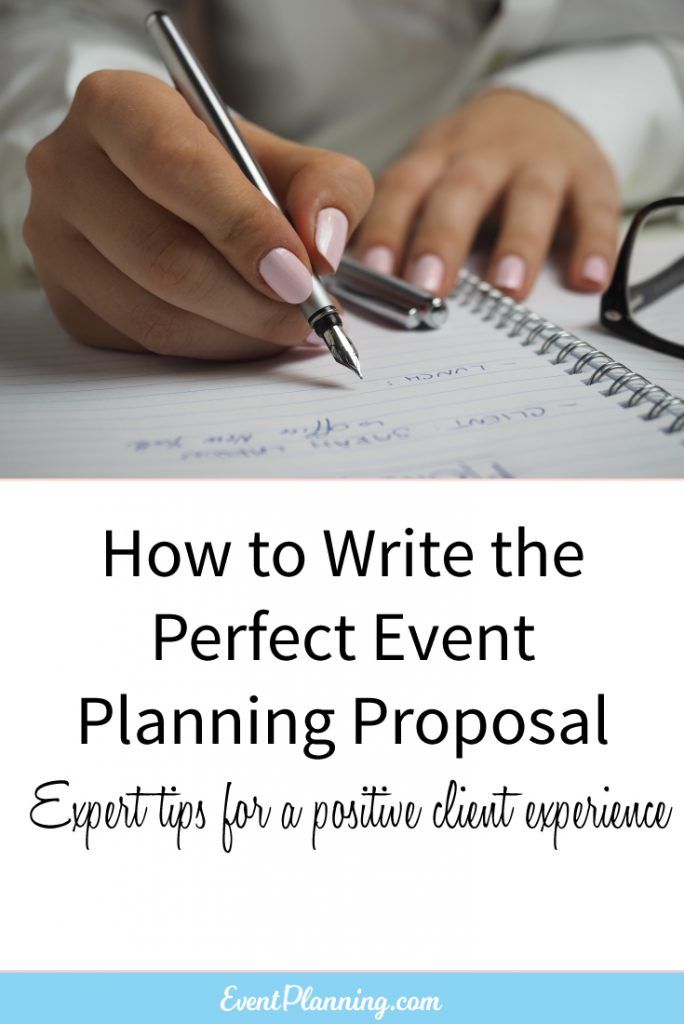Organizing a successful event requires meticulous planning and attention to detail, and one crucial element in the process is creating a winning proposal. Whether you are an event planner, coordinator, or a business owner venturing into event management, mastering the art of drawing up a proposal is key to securing funding, partnerships, and ensuring the event’s success. In this blog, we will delve into the essential steps, tips, and best practices on how to draw up a proposal for an event like a pro. From outlining your objectives to crafting a compelling budget and timeline, we will equip you with the tools and knowledge needed to impress potential sponsors and stakeholders. Let’s unlock the secrets to crafting a standout event proposal that sets you apart from the competition.
Understanding the Purpose of a Proposal
When it comes to organizing events and securing resources or funding, knowing how to draw up a proposal for an event is essential. A proposal serves as a formal request outlining the details of the event, its objectives, budget requirements, and potential benefits. It is a crucial document that communicates the organizer’s vision to potential sponsors, partners, or stakeholders.
The Key Components of a Proposal
A well-crafted event proposal typically includes an executive summary, event details, proposed budget, marketing and promotion strategies, and the expected outcomes. The proposal should clearly articulate the purpose of the event, target audience, unique selling points, and the benefits for sponsors or partners.
Executive Summary
The executive summary provides a concise overview of the event, highlighting its significance, goals, and key features. It should capture the reader’s attention and provide a snapshot of what the event aims to achieve.
Event Details
This section delves into the specifics of the event, including the theme, date, venue, agenda, and expected number of attendees. Details such as the event flow, schedule, and special attractions can make the proposal more compelling.
Proposed Budget
The budget section outlines the financial aspects of the event, including estimated costs, revenue projections, sponsorship opportunities, and potential funding sources. A clear and detailed budget demonstrates careful planning and financial viability.
Marketing and Promotion Strategies
Effective marketing and promotion are crucial for the success of any event. This section should outline the strategies for promoting the event, reaching the target audience, engaging participants, and maximizing visibility through various channels.
Expected Outcomes
Outlining the expected outcomes helps stakeholders understand the impact of the event and the benefits of participating or supporting it. Whether it’s driving brand awareness, generating leads, or fostering collaborations, clear outcomes enhance the credibility of the proposal.

Gathering Essential Information
Before drawing up a proposal for an event, it is crucial to gather essential information. Start by conducting thorough research on the event requirements and objectives.
Understanding Event Requirements
Identify the event scope, target audience, theme, and desired outcomes. Ensure to align this information with the client’s vision for the event.
Researching Event Trends
Stay updated on the latest event industry trends and emerging technologies to incorporate innovative ideas into your proposal.
- Attend industry conferences
- Follow event planning blogs and websites
- Utilize social media channels for insights
Structuring Your Proposal
When it comes to drawing up a proposal for an event, structuring it in a clear and organized manner is crucial for success. Start by creating a detailed outline that includes all the essential components of your proposal.
Executive Summary
The executive summary should provide a brief overview of the event, its objectives, and key details. It should capture the attention of the reader and make them want to learn more.
Event Details
Include detailed information about the event, such as the date, time, location, and theme. Make sure to highlight what makes your event unique and why it is worth attending.
Budget Breakdown
Break down the budget for the event, including all expenses and revenue streams. Provide a clear explanation of how the funds will be allocated and managed.
Marketing Plan
Detail your marketing strategy, including how you plan to promote the event, attract attendees, and generate buzz. Utilize both online and offline channels for maximum exposure.

Highlighting Your Unique Selling Points
When drawing up a proposal for an event, one of the key elements that can set you apart from competitors is highlighting your unique selling points. These are the specific features, benefits, or aspects of your event proposal that make it distinct and appealing to potential clients.
Identify Your Strengths
Begin by identifying what sets your proposal apart. This could include your years of experience in event planning, a track record of successful events, innovative ideas, or unique partnerships with vendors. Highlighting these strengths can capture the attention of clients looking for something special.
Showcase Your Creativity
Demonstrate your creativity and out-of-the-box thinking in your proposal. Use visuals, mock-ups, or case studies to showcase your creative ideas and how they can translate into a memorable event experience for attendees. Clients appreciate innovation and fresh concepts.
Emphasize Client Benefits
Focus on how your proposal benefits the client. Whether it’s cost-effective solutions, time-saving strategies, or unique branding opportunities, clearly outline the advantages of choosing your event proposal. Clients want to know what’s in it for them.

Incorporating Budgeting and Cost Analysis
When drawing up a proposal for an event, it is crucial to incorporate budgeting and cost analysis to ensure the project’s financial feasibility and success. By meticulously planning the budget and conducting a thorough cost analysis, event organizers can effectively manage expenses and optimize resources.
Estimating Costs
Begin by estimating the various costs involved in the event, including venue rental, catering, decorations, marketing, and staffing. Use historical data and industry benchmarks to make accurate cost projections and avoid budget overruns. Ensure to account for any unforeseen expenses to buffer the budget.
Creating a Detailed Budget
Once the costs are estimated, create a detailed budget that outlines all expenses and revenue sources. Identify areas where costs can be optimized without compromising the event quality. Utilize budgeting tools or software to track expenses and monitor budget performance.
- Allocate funds wisely based on the priorities of the event.
- Consider negotiating prices with vendors to lower costs.
- Regularly review and adjust the budget as needed throughout the event planning process.
Creating a Compelling Executive Summary
When drafting a proposal for an event, one of the most important sections is the executive summary. This concise overview provides a snapshot of the entire proposal and should captivate the reader’s attention from the start. To create a compelling executive summary, focus on highlighting the key points of the proposal in a clear and engaging manner.
Key Elements to Include
Begin your executive summary with a brief introduction that outlines the purpose of the event and the goals you aim to achieve. Summarize the main ideas and strategies proposed in the following sections. Ensure to emphasize the unique selling points that set your event apart from others.
Remember to keep it concise, yet impactful, to entice the reader to delve deeper into the proposal.
Tone and Style
When crafting your executive summary, maintain a professional and persuasive tone. Use compelling language that conveys enthusiasm and confidence in the proposed event. Avoid jargon and technical terms that may alienate readers who are not familiar with the industry.
- Use bullet points or numbered lists to highlight key information and make the summary easier to scan.
Customizing Your Proposal for Different Clients
When preparing a proposal for an event, it’s crucial to tailor your approach to suit the specific needs and preferences of each client. Customizing your proposal demonstrates your attention to detail and shows the client that you have taken the time to understand their requirements.
Understanding Client Requirements
Before customizing your proposal, take the time to thoroughly understand what your client is looking for. Research their past events, brand guidelines, target audience, and budget constraints. This information will help you create a proposal that aligns with their expectations.
Be sure to highlight key points that are of particular interest to the client.
Adapting Proposal Elements
Consider tweaking elements of your proposal such as the event theme, venue options, entertainment choices, and budget breakdown to match the client’s preferences.
- Use visual aids to showcase your ideas effectively.
- Include personalized touches to make the proposal more engaging.
Presenting Your Proposal Professionally
When preparing a proposal for an event, it is crucial to present it professionally to make a lasting impression. Follow these guidelines to ensure your proposal stands out:
Clear and Concise Presentation
Ensure your proposal is well-organized, easy to read, and free of any unnecessary jargon. Use bullet points and headings to break down information effectively. Make good use of visual aids to enhance understanding.
Customized Solutions
Personalize your proposal to the specific needs and preferences of the client or event. Tailoring your ideas demonstrates attention to detail and shows that you have invested time and effort into understanding their requirements.
Professional Formatting
Ensure your proposal is error-free in terms of spelling, grammar, and punctuation. Use a consistent font style and size throughout the document for a polished look. Consider including a table of contents for easy navigation.
Frequently Asked Questions
-
- Why is it important to draw up a proposal for an event?
- Drawing up a proposal for an event is important as it serves as a detailed plan outlining all aspects of the event such as objectives, budget, timeline, and logistics. It helps in setting clear expectations and ensuring all stakeholders are on the same page.
-
- What should be included in a proposal for an event?
- A proposal for an event should include a detailed description of the event, its objectives, target audience, budget breakdown, timeline, marketing strategies, logistics plan, and any other relevant information to give a comprehensive overview of the event.
-
- How can I make my event proposal stand out?
- To make your event proposal stand out, focus on customization, clarity, and creativity. Tailor the proposal to the specific event and audience, use concise and clear language, incorporate visually appealing elements, and showcase your unique ideas and expertise.
-
- What are some common mistakes to avoid when drafting an event proposal?
- Some common mistakes to avoid when drafting an event proposal include being vague or overly detailed, neglecting to align the proposal with the event objectives, underestimating the budget or timeline, and lacking a clear call to action or next steps for the recipient.
-
- How can I improve my event proposal writing skills?
- To improve your event proposal writing skills, practice creating proposals for different types of events, seek feedback from peers or mentors, stay updated on industry trends and best practices, and continually refine your communication and presentation skills.
Mastering the Art: Drawing Up a Winning Event Proposal
In conclusion, mastering the art of creating a compelling event proposal is essential for success in the event planning industry. By following the steps outlined in this blog, from defining your event objectives to crafting a detailed budget and timeline, you can position yourself as a pro in the field.
Remember, a well-written proposal not only showcases your professionalism and attention to detail but also serves as a roadmap for executing a successful event. By honing your proposal writing skills, you can secure more opportunities, impress clients, and ultimately, elevate your event planning career to new heights.
So, go ahead, put these tips into practice, and watch how your event proposals transform into powerful tools that set you apart from the competition. Here’s to drawing up winning event proposals like a true pro!



